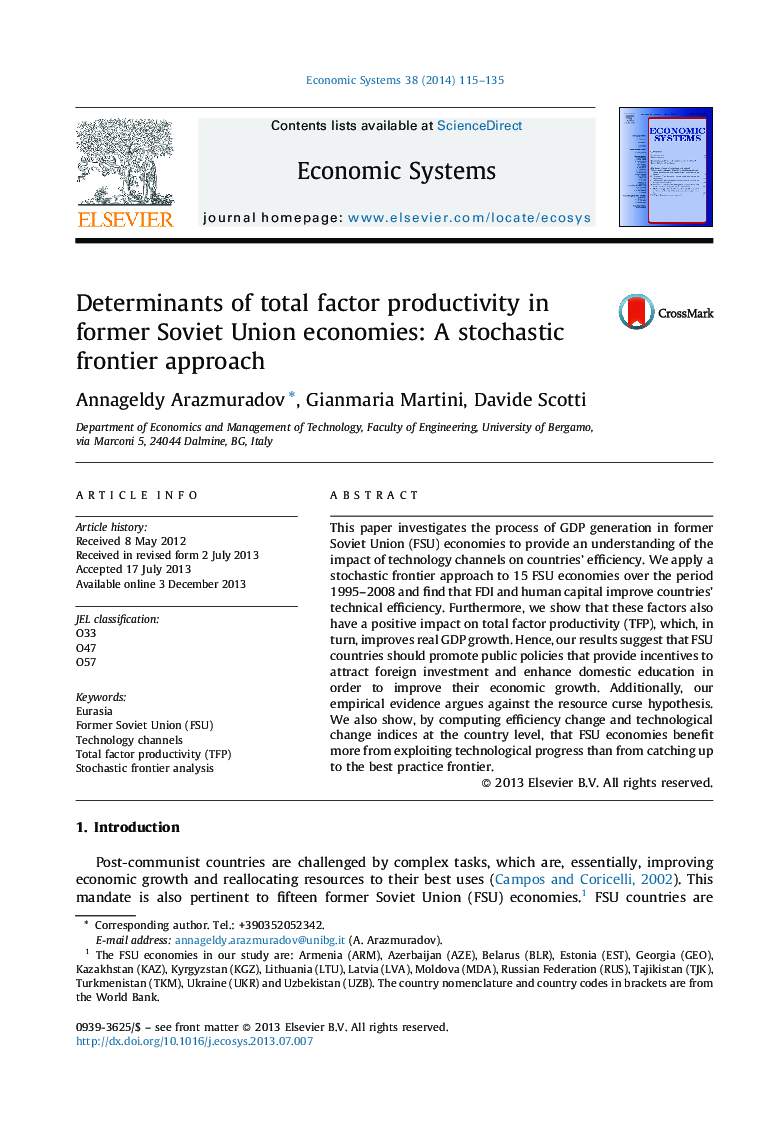| Article ID | Journal | Published Year | Pages | File Type |
|---|---|---|---|---|
| 5056333 | Economic Systems | 2014 | 21 Pages |
â¢We study GDP generation in 15 former Soviet Union (FSU) economies using SFA analysis.â¢FDI and domestic human capital exert a positive effect on countries' productivity (TFP).â¢FSU economies benefit more from exploiting technological progress than from catching up to the best practice frontier.â¢We detect a significant positive correlation between GDP growth and TFP.â¢FSU economies should provide more incentives to invest in cross-country technology transfer.
This paper investigates the process of GDP generation in former Soviet Union (FSU) economies to provide an understanding of the impact of technology channels on countries' efficiency. We apply a stochastic frontier approach to 15 FSU economies over the period 1995-2008 and find that FDI and human capital improve countries' technical efficiency. Furthermore, we show that these factors also have a positive impact on total factor productivity (TFP), which, in turn, improves real GDP growth. Hence, our results suggest that FSU countries should promote public policies that provide incentives to attract foreign investment and enhance domestic education in order to improve their economic growth. Additionally, our empirical evidence argues against the resource curse hypothesis. We also show, by computing efficiency change and technological change indices at the country level, that FSU economies benefit more from exploiting technological progress than from catching up to the best practice frontier.
